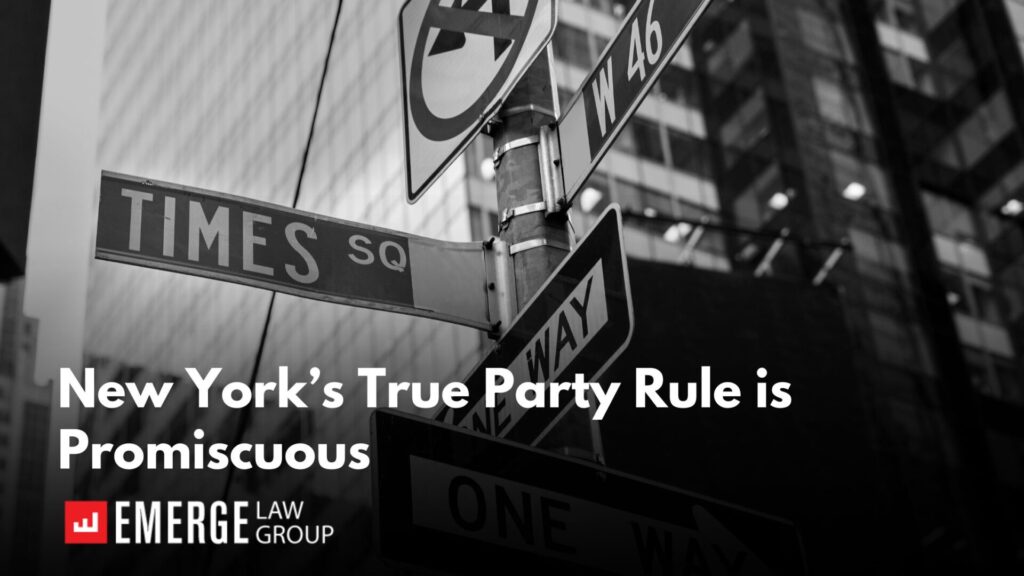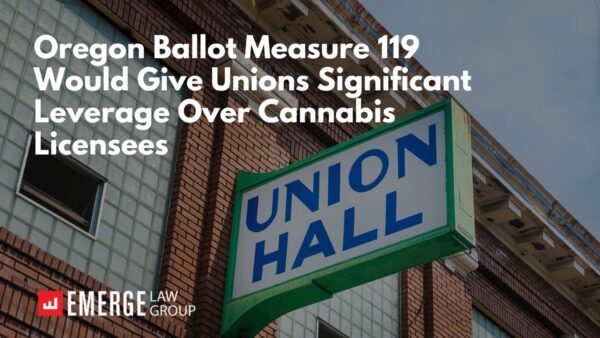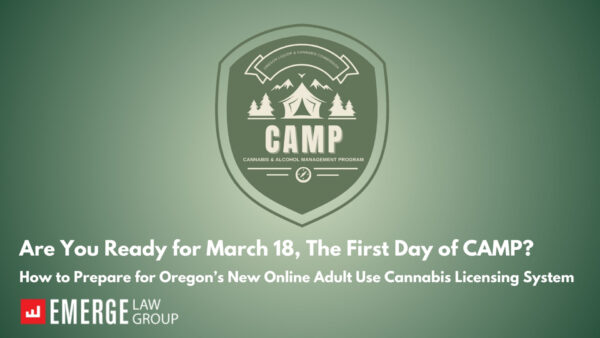Authors: Jay Purcell, Shareholder; Duncan Delano, Shareholder; Natalie Diaz, Law Clerk
Overview. Section 80 of the New York Marijuana Regulation and Taxation Act splits the cannabis business between two so-called tiers: cultivation, processing, distribution and microbusiness (collectively “Cultivation”) on the one hand; and, on the other hand, retail, on-site consumption and delivery (collectively, “Retail”). New York prohibits an individual from participating in both Cultivation and Retail; one must choose either Retail or Cultivation, and that choice triggers a prohibition on participating in the other tier. In a perfect world, New York would promulgate clear regulations about participation; if someone does ABC, that’s enough to trigger the prohibition; and if someone does DEF, that’s not enough. New York selected for a different outcome, however, and in three different rulemaking proposals, New York mumbled.
True Party Defined. Instead of definitions, New York offers multi-step examples, with multi-step exclusions. The output, a “True Party in Interest,” is defined in the 5/11/23 proposed regulations at Section 118(105) (the “Proposed Regs”). Simply, a “True Party” is someone forbidden from participating in one tier, because of her involvement in another. In offering examples of True Parties, but not definitions, New York intends for the True Party label to reach a sea of unsuspecting cannabis market participants (and their spouses). In evaluating these proposed regulations, that’s the first key takeaway: New York’s True Party rules are promiscuous.
Put differently, by attaching the label to meagre and major actors, the True Party rule is loose. All of the following are True Parties: a small investor on the Board of Directors; contractors earning over $250,000; persons with “unexpressed” power; LPs, GPs, and all their spouses. We note that the Proposed Regs are not yet final and we predict New York will amend the definition of “True Party” many times in the future. For now, it’s useful to conceptualize True Party as one of four persons:
- A large investor in a licensee (more than 5% of a public company or more than 20% of a non-public company[1]); and, everyone with equity in the large investor[2];
- Someone entitled to large sums of money (10% of a licensee’s gross revenue; 50% of its net profit, or $250,000 annually);[3]
- Someone with power: managers, officers and directors, and people who may exercise control, or direct the management, managers or policies of a licensee[4]
- Someone who guarantees a licensee’s debts[5]
Key Exception. New York’s exceptions are muddled, too.[6] The key exception is the “Passive Investor,” someone holding, at most, 5% of a public company’s equity, 10% of a private ROD or microbusinesses’ equity, or 20% of a private licensee’s equity; and lacking control or influence.[7] [More on the Passive Investor exclusion here]
Summary
- Being labeled a True Party in one Tier (Cultivation or Retail) triggers complete prohibition on any participation in another Tier[8]
- New York applies the True Party label promiscuously. Albany’s goal is applying the label as often as possible because this definition triggers investment caps.
- To retain power, New York’s rules are poorly drafted on purpose.
- New York will face challenges in collecting, storing and using all the information it demands licensees provide (especially regarding families)
- The 5/23 Proposed Regs are not final. Whatever happens next, OCB will amend Section 118 again.
- Despite inevitable amendments, plan on New York continuing promiscuity for the True Party concept
Note to readers: this analysis is based on proposed regulations; in other words, this analysis will become obsolete as soon as final regulations are promulgated (likely second half of 2023).
Next: Read About Exceptions to New York’s True Party Rule
[1] 5/23 Proposed Regs 118(76)
[2] 5/23 Proposed Regs 118(105)(i)(b)-(c)
[3] 5/23 Proposed Regs 118(105)(i)(d) (landlords are excepted at 105((ii)(a))
[4] 5/23 Proposed Regs 118(105)(i)(a), (f), (i)
[5] 5/23 Proposed Regs 118(105)(i)(g)
[6] Regulators provide eight examples of non-True Parties. These are persons for whom the licensee is a minor part of its overall business activity: a real estate broker, a landlord, a branding or staffing agency, a bank, a passive investor, a consultant; and, someone with a right to receive smaller sums of money (a bonus or commission that doesn’t exceed 10% of a licensee’s gross revenue; consultants earning less than 10% of gross revenue, 50% of net profit, or $250,000 annually (5/23 Proposed Regs 118(ii)(b),(d),(e)).
[7] 5/23 Proposed Regs 118(76).
[8] See 5/23 Proposed Regs 123.3(f); 123.5(i); 123.9(j)





